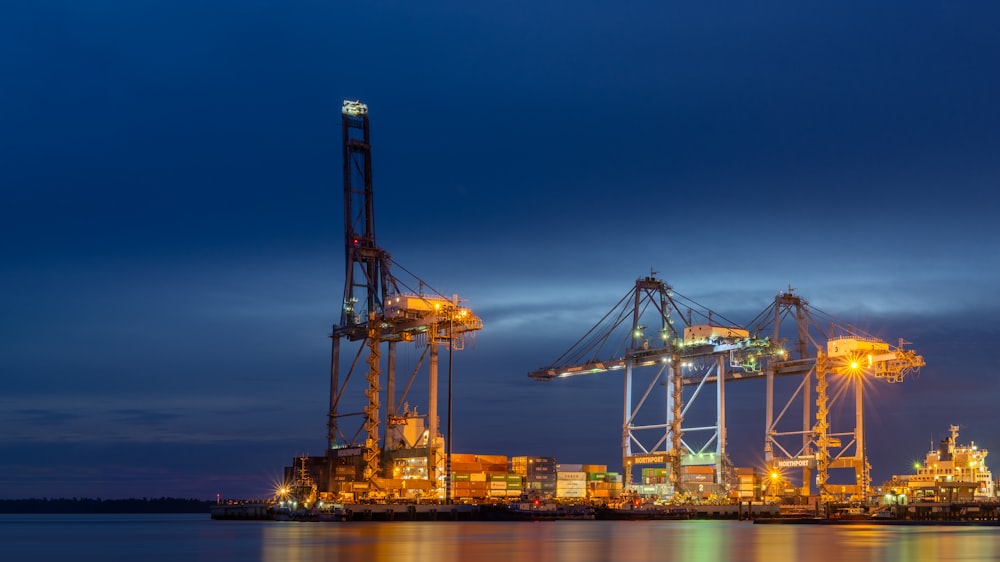“Freeing yourself was one thing, claiming ownership of that freed self was another.” –
(This blog post previously appeared in The National.)
The National dedicated last week to the issue of Freeports and I’m glad they did. These deregulated tax havens have not been interrogated nearly well enough by our politicians or our media and the information coming from the ports themselves – even when asked directly – has been too little and too vague. This hasn’t allowed for a proper democratic debate around their merits or demerits, has allowed their failures to go unreported and, perhaps worse, has allowed outright conspiracy theories to rise up to replace the information vacuum which has, in turn, made it harder to campaign against them on the basis of the facts on the ground (something which suits their proponents whose agenda thrives equally in an empty well of information as it does in a polluted one).
To dispense with a couple of the more prominent theories. These Freeports are not “Charter Cities”. That’s a theory that has emerged from American Libertarian circles (you can tell because of the name. If it was a Scottish idea, we’d call them Royal Burghs) and in it’s modern incarnation carries the connotation that the Freeport authorities themselves will set tax, regulation and even legislation within the Freeport zones. This is not true; they will remain set by the Scottish and UK Governments, though the vulnerability of either to lobbying is not an insubstantial risk. The other is that Freeports will be allowed to frack in Scotland. Again, the Scottish moratorium holds within the zones just as much as it does outwith.
Neither of these things let the Scottish Government off the hook when it comes to this policy. We would expect the UK Conservatives to promote a policy that amounts to a substantial tax bung to already very rich corporations (A question I would ask them if I could: If the case for their development proposal is so strong that we must promote it now, why is simultaneously so weak that it couldn’t be done without these tax breaks?) but the Scottish Government should have been better than this, shouldn’t it?
As I see it, there are two reasons for Holyrood supporting these Freeports. The first is that they’re running feart that if they opposed the plans, the UK would have retaliated by placing more Freeports in England near the Scottish border to try to suck the Scottish economy down south – to which, I’d say that that was always the purpose of the Union anyway and Teeside Freeport is already showing us what happens when that bubble starts to burst (as if Silicon Glen didn’t already).
The second is that there may be elements in the Scottish Government who are True Believers and honestly hold that corporate tax cuts create GDP growth (something simply not borne out by the data) or that cutting taxes on reserved taxes like National Insurance or local taxes like Business Rates would lead to more than replacement growth in devolved taxes like Income Tax, something that has never to my knowledge been modelled in publicly released data (I have submitted an FOI to the Scottish Government asking this question but as of the time of writing I have not yet received a reply). If either of these assumptions fail, then our public services will pay the price.
We see the extent of the Scottish Government’s support the recent interview in The National with the CEO of Cromarty Freeports who talked of their choice to offer LBTT relief (and to follow the UK’s policy of doubling the duration of the tax cuts from five to ten years) and we also see the lack of democracy in the public consultation on that tax break which was the single worst public consultation I’ve ever participated in.
You can read the long story on Common Weal’s website in my article from July 2023 titled A Deal With The Devolved – Part Two.
The short version is that instead of asking the public if we thought Freeport tax cuts were a good or a bad idea, they asked if the legislation they proposed was worded properly and would result in those tax cuts. Only ten responses were accepted, mostly from property consultants, tax accountants and the Freeports themselves. Two trade union responses were effectively rejected for arguing against the tax cuts rather than ‘answering the question’. The result was the Scottish Government being able to claim “broad support” for their proposals with Common Weal’s response being the only recognised (if ignored) voice of dissent.
This is a serious problem for democracy and accountability. I know readers of this column who have campaigned long and hard for decades now to ensure that our economy wasn’t gutted by a Government in Westminster who didn’t care about the wasteland it left behind. We can’t now say that just because the Scottish Government is doing it then we should be assured by their “safeguards” and the “Green” label applied to it – certainly not when every time they’ve been lobbied to make sure these things actually work differently from the ones that Westminster controlled outright, they’ve refused to do so. Tax havens and deregulation zones are a direct threat to our economy and to our democracy. They erode hard won workers’ and environmental rights. Rather than developing an economy based on plans that are far too easily lifted and moved whenever the next tax break comes along, Scotland should instead focus on anchoring development proposals that will last not just for five years or ten but for generations to come.

